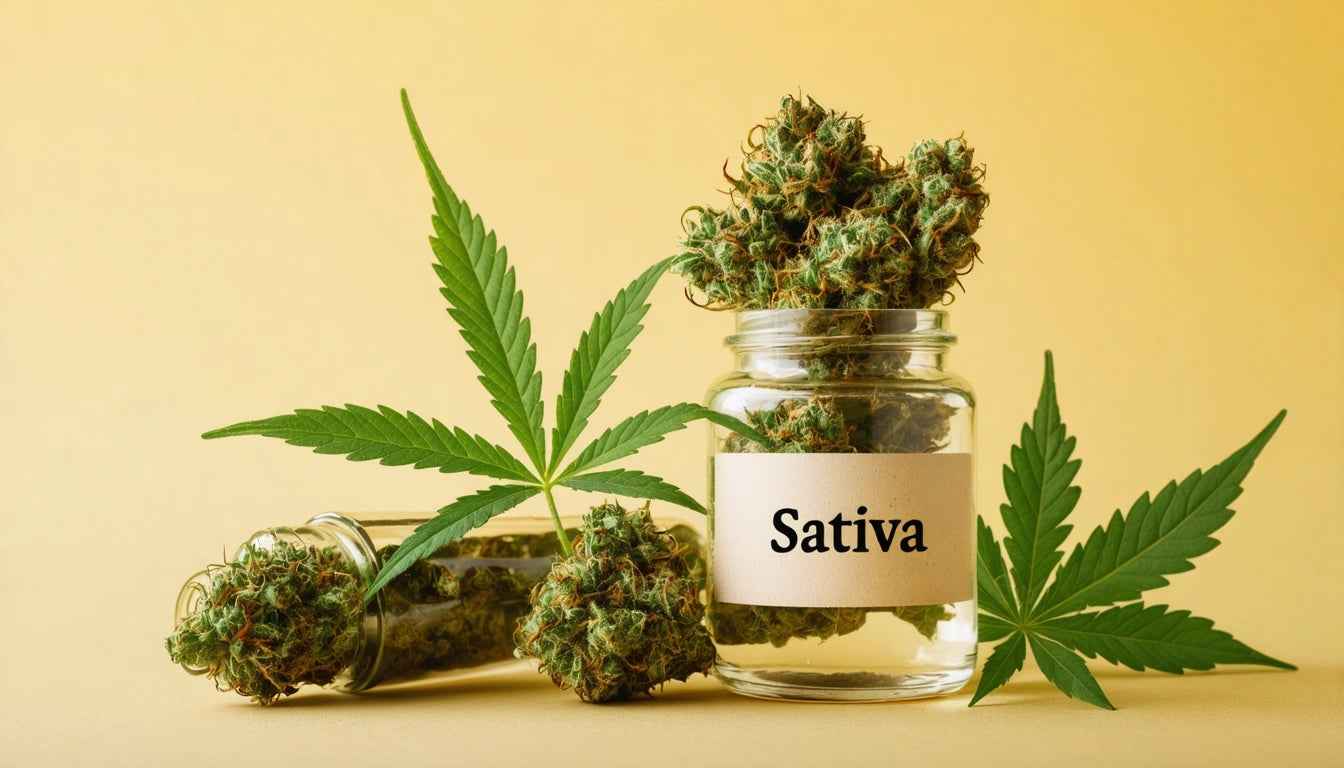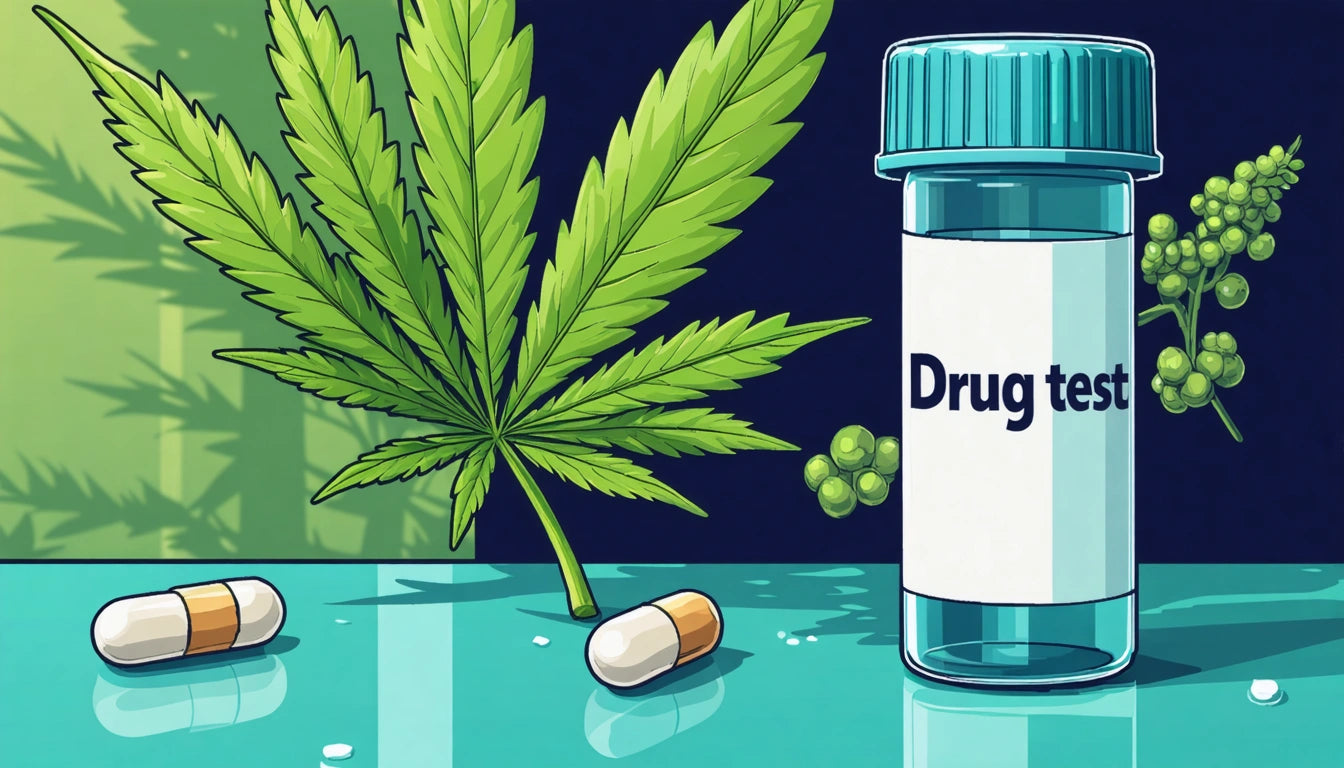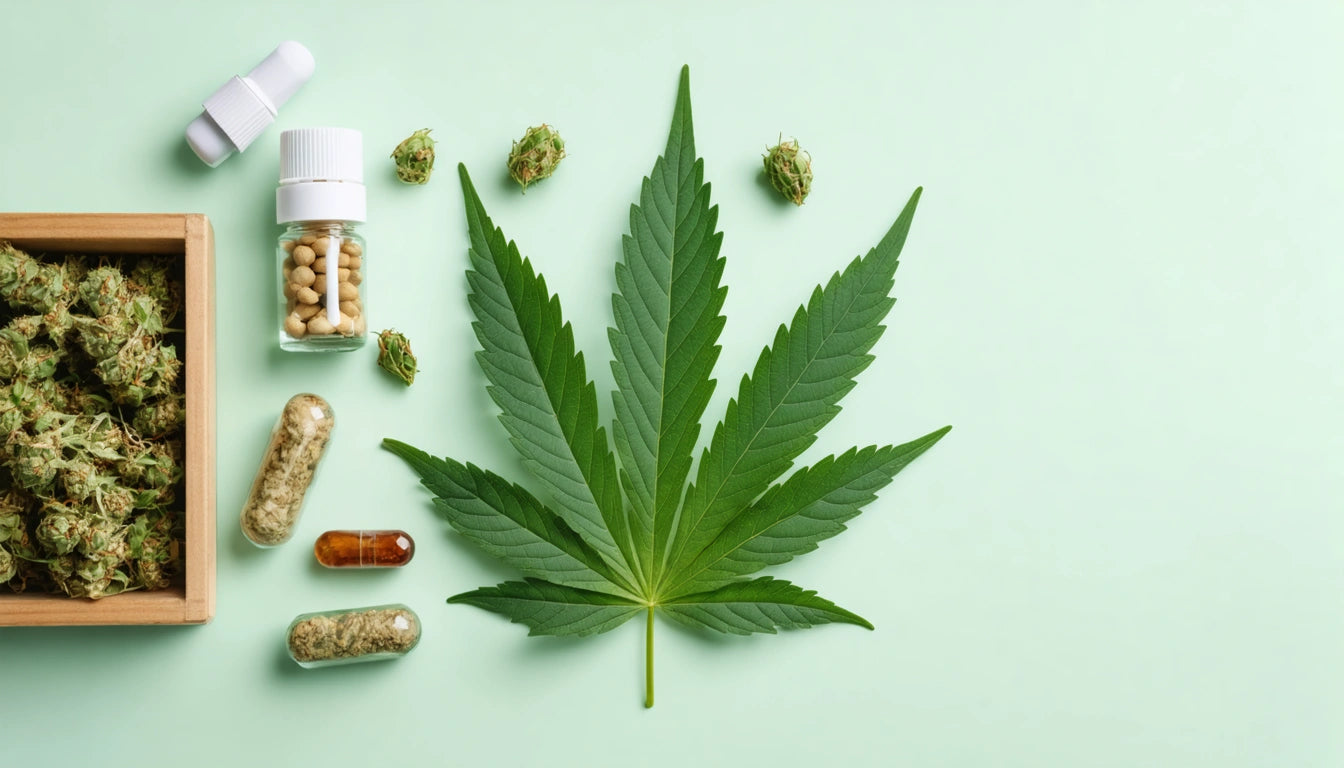Indica vs. Sativa: Which Is Stronger?
The debate over what is stronger, sativa or indica, remains one of the most common questions among cannabis consumers. While many users assume one category consistently delivers more potent effects than the other, the reality is more nuanced than a simple strength comparison. Understanding the differences in potency requires looking beyond traditional classifications to consider multiple factors that influence the cannabis experience.
Understanding Indica and Sativa Basics
Before comparing strength, it's important to understand the fundamental differences between these cannabis types. Sativa and indica cannabis strains have historically been differentiated by their physical characteristics and reported effects.
Indica plants typically feature:
- Shorter, bushier growth patterns
- Broader leaves
- Denser buds
- Shorter flowering cycles
Sativa plants generally display:
- Taller, more stretched growth
- Narrower leaves
- Longer flowering periods
- Less dense buds
Traditionally, indica strains have been associated with sedating, physical effects often described as a "body high," while sativas are linked to energizing, cerebral effects or a "head high." However, modern cannabis research suggests these generalizations oversimplify the complex reality of cannabis effects.
Comparing Potency Between Indica and Sativa
When asking which is stronger, indica or sativa, we must first define what "stronger" means in the context of cannabis:
THC Content
If measuring strength by THC percentage alone, neither category consistently outperforms the other. Modern breeding has created high-THC varieties in both categories, with some indicas, sativas, and hybrids exceeding 30% THC. The perception that indicas are stronger often stems from their typically more pronounced physical effects, which can feel more intense to some users.
Effect Intensity
The perceived strength of effects varies significantly between users. When comparing indica and sativa effects, indicas often produce more noticeable physical sensations like deep relaxation and sedation, which some interpret as greater potency. Sativas typically deliver more cerebral, mentally stimulating effects that others might consider equally potent but in a different way.
Onset and Duration
Indica effects generally have a faster onset and may feel more immediately powerful, while sativa effects can build more gradually. Duration can vary widely across both categories, influenced more by specific strain genetics than broad classification.
Factors Affecting Cannabis Strength
The potency question extends far beyond the indica vs. sativa categorization. Several factors determine how strong a particular cannabis variety will be:
Cannabinoid Profile
While THC receives the most attention, the full spectrum of cannabinoids influences potency. Some strains with moderate THC but higher CBD, CBG, or CBN levels may produce more balanced, therapeutic effects without overwhelming intensity.
Terpene Content
Terpenes, the aromatic compounds in cannabis, significantly influence the effects through what's known as the entourage effect. For example, myrcene (commonly found in indicas) may enhance sedation, while limonene (often in sativas) might contribute to uplifting effects.
Consumption Method
How cannabis is consumed dramatically affects perceived potency. Concentrates typically deliver stronger effects than flower, regardless of strain type. For consumers concerned about dosage control, using products stored in properly sealed containers with child-resistant lids helps maintain potency while ensuring safety standards are met.
Popular Strong Strains in Each Category
Some varieties have developed reputations for exceptional potency:
Potent Indica Strains
- Northern Lights: Known for its heavy sedation and relaxation
- Granddaddy Purple: Famous for powerful physical effects
- Jealousy: Despite being indica-dominant, this hybrid strain delivers intense effects through high THC content and complex terpene profile
Potent Sativa Strains
- Durban Poison: Celebrated for its clear-headed yet powerful cerebral effects
- Ghost Train Haze: Often tests among the highest THC percentages
- Green Crack: Known for intense energy and focus
Interestingly, many of today's strongest strains are actually hybrids that combine genetics from both categories, further complicating the strength comparison.
How to Choose the Right Strain Strength
Finding the appropriate potency level involves several considerations:
Experience Level
Novice users should generally start with lower-potency options regardless of type. Learning to distinguish between indica and sativa effects takes time and personal experience.
Desired Effects
Consider what you're hoping to achieve. For deep relaxation or sleep aid, a strong indica might be appropriate. For creative stimulation without sedation, a moderately potent sativa could be ideal.
Medical Considerations
Those using cannabis therapeutically should consult healthcare providers about appropriate potency levels for their specific conditions.
Beyond the Indica-Sativa Debate
Modern cannabis science increasingly suggests that the indica vs. sativa framework is oversimplified. Many researchers and industry professionals now advocate focusing on specific cannabinoid and terpene profiles rather than broad categories when assessing potential effects and potency.
The question "what's stronger, indica or sativa?" ultimately has no universal answer. Strength is subjective, varies between individuals, and depends on numerous factors beyond simple categorization. As the cannabis industry evolves, consumers benefit from moving beyond these traditional labels to develop a more nuanced understanding of how different varieties affect them personally.
Whether you prefer indica, sativa, or hybrids, understanding your own tolerance and desired effects remains the most reliable way to find the right cannabis experience for your needs.











Leave a comment
All comments are moderated before being published.
This site is protected by hCaptcha and the hCaptcha Privacy Policy and Terms of Service apply.